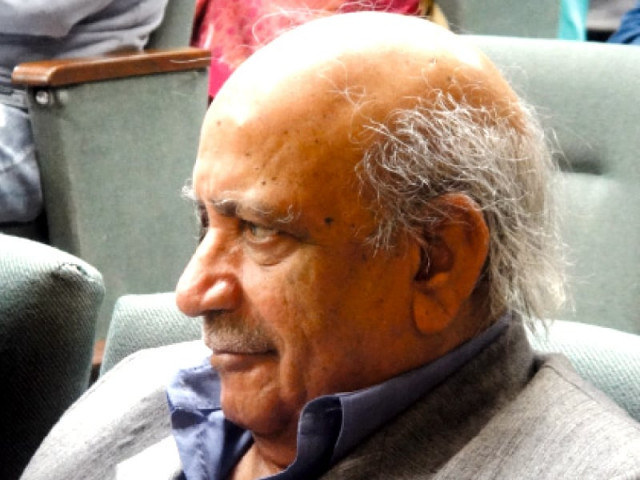Two-nation theory, Raj mindset behind minorities’ alienation: expert
Two-day conference calls for mechanism to monitor violation of minorities’ rights.

The two-nation theory and the “Raj” mindset of discrimination are the biggest reasons behind continuing alienation of minorities in Pakistan and India. Moreover, whatever protection they enjoy under the law is never truly practiced.
These views were expressed by senior journalist, humanist and political activist IA Rehman while speaking at the closing session of a two-day regional conference on “Rights of Religious Minorities in South Asia: Learning from Mutual Experiences” on Wednesday. The conference was jointly organised by Islamabad Policy Research Institute and Germany’s Hanns Seidel Foundation.
Rehman said Muhammad Ali Jinnah was also an opponent of the theory and had denounced it in his speech on August 11, 1947, declaring all citizens to be equal irrespective of religion.
“In our society a rich Muslim man is at the top of the social hierarchy and a poor non-Muslim woman is at the extreme bottom. Pakistan has its own class of Shudras and the kohli and the bheel groups have no human rights. Even within these groups, women do not have the same rights as men,” he explained.
He said he had initially seen some hope in South Asian Association of Regional Cooperation Social Chapter but its annual summits, which he termed as “barren exercises”, had been disappointing.
Towards the end of the conference, certain statements on Pakistan Army’s alleged atrocities in Dhaka before its independence were hotly contested by some members in the audience.
Saleem Samad, a journalist from Bangladesh, explained the transition which had been taking place in religion’s role in politics since the creation of Bangladesh.
“Secular state structure that was bequeathed to the country at the time of its creation was overturned by General Zia when he ‘circumcised’ the Constitution to win orthodox support of his illegal rule,” said Samad. But the country is regaining its pluralist character as religious groups have been sidelined, he added.
Jinnah Institute Executive Director Raza Rumi, in his presentation, mainly dwelt on Shia-Sunni divide and asserted that the former had been at the receiving end, particularly since the 1980s. “General Zia and his rightist cohorts turned Pakistan into an exclusivist state,” he remarked.
Speaking on the status of Indian Muslims, Dr Tanweer Fazal from India said there was a split between modernist and traditionalists in the country and the political consciousness of Muslims was fragmented.
“Jinnah was conscious of the divide and the Muslim League’s policy was to extricate itself from the influence of clerics. The two-nation theory formulated in the middle-class living rooms of Uttar Pradesh was buried in the Bengali countryside,” said Fazal.
The conference ended with recommendations for the United Nations to hold a minorities’ day besides putting in a mechanism to monitor violations of their rights in some countries.
Published in The Express Tribune, July 6th, 2012.



1724319076-0/Untitled-design-(5)1724319076-0-208x130.webp)















COMMENTS
Comments are moderated and generally will be posted if they are on-topic and not abusive.
For more information, please see our Comments FAQ